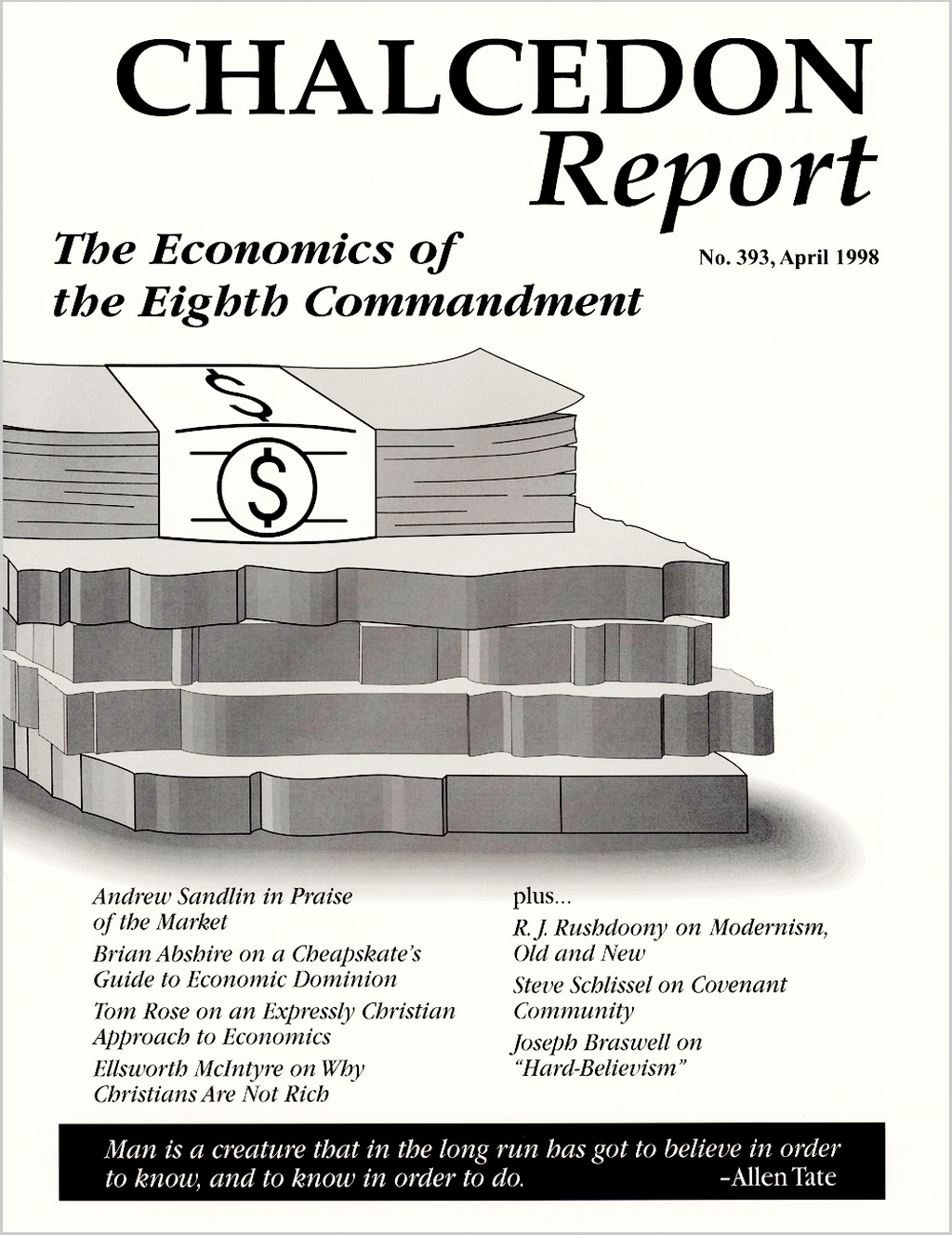
Magazine Issue
The Economics of the Eighth Commandment
April 1998 Articles:
Modernism Old and New, Part 1

- R. J. Rushdoony
In Praise of the Market "Christian" Socialism Versus Christian Capitalism
- P. Andrew Sandlin
Accusations and Judgments

- Mark R. Rushdoony
Reconstructing Family Finances or, A Cheapskate's Guide to Economic Dominion
- Brian M. Abshire
Why Christians Are Not Rich
- Ellsworth McIntyre
Like Them That Move the Landmark
- William O. Einwechter
2 Corinthians 4:13 — A Riposte to Descartes' Cogito Ergo Sum
- James Bilezikian
It Is Not Good For Man To Be Alone

- Andrea G. Schwartz
What's Wrong about Loving What God Hates?
- Rachel Schwartz
"Hard-Believism," "Easy-Believism," and Sola Fide
- Joseph P. Braswell
Should Hate Be a Crime?
- Sheldon Richman
An Expressly Biblical Approach to Economics
- Tom Rose
E Pluribus Unum
- Steve M. Schlissel
Autonomy

- R. J. Rushdoony
Where Should We Then Live? Covenant Community (Part I)
- Steve M. Schlissel